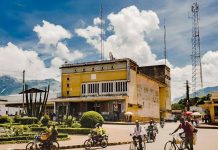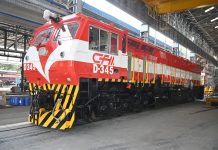Africa-Press – Mozambique. The director of the African department of the International Monetary Fund (IMF) said on Tuesday that it is necessary to address the underlying causes of the conflict in northern Mozambique and not just increase public spending on military spending.
Speaking at the fourth Africa Resilience Forum, during the panel on “The Security, Economic Growth, and Investment Nexus: Solutions for Mitigating Vulnerability and Fragility”, which was also attended by Mozambique’s Finance Minister, Selassie stressed that “increasing spending on security may be the first political and economic response, but without dealing with the underlying causes of conflict” it is not possible to “move forward”.
In explaining the economic effects of conflict, Selassie pointed out that another problem, apart from humanitarian issues, is that countries’ revenues decline at the same time as expenditure rises.
“One of the challenges that countries face with the amounts of revenue they have, which are limited, is that when they have security challenges, the public expenditure available for investment goes down even further, and at the same time you have to increase military spending, and that limits the ability to develop human capital, and that’s where the IMF comes in,” he pointed out.
The Fund has supported 39 countries in Africa over the last year and a half, which is 13 times the normal amount, reaching around US$30 billion (€25.6 billion), which is in addition to the US$33 billion (€28.2 billion) that has been channelled through the allocation of Special Drawing Rights to the continent.
Cabo Delgado province is rich in natural gas but has been terrorised since 2017 by armed rebels, with some attacks claimed by the extremist group Islamic State.
The conflict has led to more than 3,100 deaths, according to the ACLED conflict registration project, and more than 817,000 displaced people, according to Mozambican authorities.
Since July, an offensive by government troops with support from Rwanda, which was later joined by the Southern African Development Community (SADC), allowed for increased security, recovering several areas where there was rebel presence, including the town of Mocímboa da Praia, which had been occupied since August 2020.






